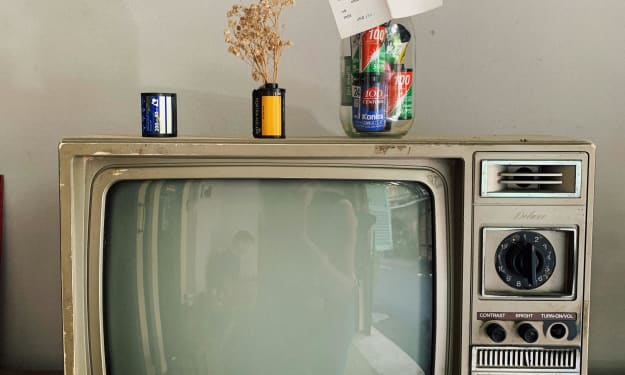
Orion was born, son of Leonidas and Aikaterini citizens on Athens (Kihm, 2021), on on June 22, 439 BC. He was born in his family home and his mother was accompanied by several midwives who cared for her during the process (Cole & Symes 2020). He was born healthy and his mother survived, and on his tenth day of life he was given his name and accepted into the household (Cole & Symes 2020). His father hoped for him to take over the family business when he came of age. They owned a collection of farms outside the city with some of the best slaves in the area. The production was always plentiful and the income kept his family in a good position (Cole & Symes 2020).
Orion grew up in an upper-class home. He enjoyed all the benefits a boy in his time could given his social status. He attended school and excelled in his studies of math and had a keen mind for philosophy (Cole & Symes 2020). Orion was also an excellent marksman and enjoyed practicing archery in the courtyard in his home. His father hired an archer from the Athenian archer corps to help Orion develop his skills with a bow and learn self-defense with a sword (BBC 2021, Cole & Symes 2020).
When the plague of 430 BC broke out Orion lost his older sister. The city at that time was completely devastated and the only reason any of the family survived was due to his Leonidas quick action (Cole & Symes 2020). His father was able to afford to flee the city to a cottage they had on one of their farms. Any slaves that were thought to be sick were removed and the area was kept free from any visitors for quite some time. Orion was able to continue his studies as his father hired a tutor who stayed with them throughout the ordeal. Orion was very lucky that his family had the wealth and his father had the knowledge to move from the city and avoid almost certain death. The plague left nearly two-thirds of the population of the city dead and even the great Pericles and his sons fell victim to the disease (Cole & Symes 2020).
On June 22nd, 421 BC Orion turned 18 and he began his attendance of military school, a process required for him to get his citizenship (Cole & Symes 2020). His mother Aikaterini was concerned because the Peloponnesian War was still continuing and the call for men was high. She did not want to see her son drawn into battle and prayed to the gods to see him through these difficult times. The gods answered Aikaterinis prayers and two years later Orion graduated, giving him the right to become a citizen of Athens.
Depicted is the only known drawing of Orion from around his eighteenth birthday. It shows he had locks of blonde hair and blue eyes, a feature of a true Athenian. He was well groomed which makes sense coming from wealth and being educated (Unknown, N.D.).
Orion continued to enjoy his life of privilege into his later years. Often spending time at the farm where his family had held up during the era of the plague. He managed the family business with his father and was active in his community. The two would attend public forums and the connections he made combined with his knack for math made him an excellent businessman (Cole & Symes 2020). This also led to Orion becoming engaged to Penelope, the daughter of a prominent merchant. The union would provide benefits to both families as the farms could supply the merchants shops and ensure that demand for their products were kept high (Cole & Symes 2020).
Although Orion was living a life that was much more exceptional than many in Athens, he still could not escape the pending dooms that the city was about to face. 405 BC was the beginning of a transition for Orion as the Peloponnesian fleet destroyed almost all of the remaining Athenian naval ships in the Hellespont at the battle of Aegospotami (Rickard, Sept. 2011, Cole & Symes 2020). This caused great fear for the people of Athens and caused many to flee the city, including Orion’s family. Leonidas made arrangements with an old friend for passage to Cyprus in hopes to escape the coming Spartan attack (Cole & Symes 2020).
To understand the situation better and what the effects were on the people of Athens at this time the primary sourced article “Pylos Reviseted; Thucydides’ Primary Source” (Silhanek, 1970) provides information on accounts of battles fought in the Peloponnesian War. The name Peloponnesian War simply put “describes a series of battles between the Athenians and Spartans” (Silhanek, 1970, p.1). In this war the Athenians were constantly put under stress from their adversaries, primarily because the “Athenians had to ward off attack by sea and land” (Silhanek, 1970 p.2). When the Athenians lost the battle of Aegospotami this would have been devastating because they were used to naval superiority. They would be given “the image of the strange reversal of roles, when the normally seagoing Athenians fight a land battle against the normally land based Spartans, who are attacking from the sea.” (Silhanek, 1970, p.3). The morale of the Spartans would have increased dramatically as the Athenians declined when the remains of their fleet was decimated. For the Spartans “this battle must have been on the part of the Spartans one of the most creditable incidents in their great military history” (Silhanek, 1970, p.4). which in the same respect would leave the Athenians viewing it as one of their hardest defeats.
For Orion leaving the city posed a great moral and ethical dilemmas. He would essentially be abandoning his people. He was a citizen of Athens and had received military training (Cole & Symes 2020). For Orion being a citizen of Athens was a point of great pride. He had been raised in the city and although he did spend ample time enjoying the farms in the countryside, he felt his place was on the wall with his bow defending from an attack. He had spent much of his life training as an archer and practicing combat with his tutor. He knew his skills were great and Athens needed men with skill and experience because many of the cities’ defenders were nothing more than recruits (Cole & Symes 2020).
To the same respect he had obligation to his family to see that they survived the trip to Cyprus and managed to establish themselves there. His parents were now elderly for that era and although they were still quite able, they relied on Orion for help with the management of the business and controlling the slaves. Penelope was with child and was expected to give birth in a few months. The choice of leaving before an imminent attack that would leave most of his friends dead or enslaved in the event of a loss conflicted heavily with his feelings of duty to his family (Cole & Symes 2020).
Orion made his choice and agreed to flee with his family. The decision was not an easy one but he used his analytical mind to make what he believed a sound decision. Although in one way he felt like he was abandoning his people, in another he felt like he was giving them hope. If the Spartans were to take Athens, they would make slaves of those who were strong and kill anyone who was weak or opposed them. Athenians would be assimilated as Spartans and their way of life would no longer exist.
By fleeing with his family, Orion would be able to continue the traditions and culture of his people. This would be much more difficult for his elderly parents and wife to do on their own. It would be almost certain that the slaves would uprise against them or other dangers would arise and they simply were not young or able enough to manage. His wife could have complications with the pregnancy or birth and if the child was to be raised a true Athenian, Orion would need to be present to offer his guidance and knowledge. This was what his father would have done for him and this seemed to be the most practical way for Athenian culture to be guaranteed to survive.
Sources
BBC, 2021. “What Was It like to Live in an Ancient Greek Family?” BBC Bitesize, BBC, 2021, https://www.bbc.co.uk/bitesize/topics/z87tn39/articles/zc8yb9q#:~:text=Ancient%20Greek%20homes%20were%20built,t%20have%20much%20furniture%20inside.
Cole, J., & Symes, C. L. (2020). Western Civilizations. (Brief 5th ed.), Chapter 3, W. W. Norton & Company.
Kihm, Sophie. “Ancient Greek Names.” Nameberry, Nameberry, 1 Dec. 2021, https://nameberry.com/list/691/ancient-greek-names.
Rickard, J (9 September 2011), Siege of Athens, to 404 BC, http://www.historyofwar.org/articles/siege_athens_404.html
Rickard, J (31 August 2011), Battle of Aegospotami, 405 BC, http://www.historyofwar.org/articles/battles_aegospotami.html.
Silhanek, D. K., “Pylos Revisited: Thucydides’ Primary Source.” The Classical World, vol. 64, no. 1, [Johns Hopkins University Press, Classical Association of the Atlantic States], 1970, pp. 10–13, https://doi.org/10.2307/4347247.
Unknown. (n.d.). Avatar maker. Avatar Maker - Create your own avatar online. Retrieved December 9, 2021, from https://avatarmaker.com/.
Cover Image
Altay, Eray. “Aerial View of City Buildings · Free Stock Photo.” Pexels, 4 Mar. 2020, www.pexels.com/photo/aerial-view-of-city-buildings-3834346.






Comments
There are no comments for this story
Be the first to respond and start the conversation.